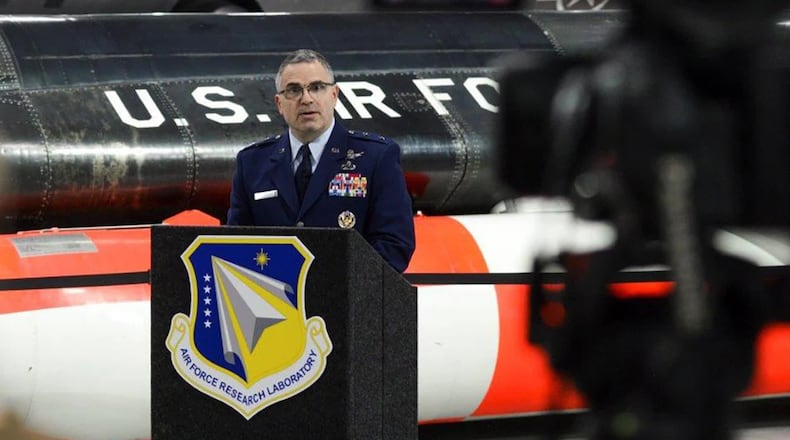The judge ruled that the information should have been provided to Cooley’s defense team by Dec. 28. Daniel Conway, attorney for Cooley, told the Dayton Daily News Friday the information was provided and is being analyzed by defense experts now.
“We were provided a digital copy of the complainant’s laptop that is still being analyzed, but is missing information that would be expected to be present,” Conway said.
“There are items of interest that should be there but are not — everything from emails to drafts of letters,” he said.
More time is needed to assess the data, he added.
A sexual assault charge, with three specifications under Article 120 of the Uniform Code of Military Justice, was referred against Cooley — a former commander of Air Force Research Laboratory (AFRL) at Wright-Patterson Air Force Base — as result of an alleged Aug. 12, 2018 off-duty incident with an adult civilian woman in Albuquerque, N.M. The woman does not work for the Air Force or the Department of Defense, the Air Force has said.
The Dayton Daily News typically does not identify those who say they have been victims of sexual assault.
Gen. Arnold Bunch removed Cooley from command of AFRL in January 2020 and decided in April last year to allow a court-martial against Cooley to proceed.
Late Thursday, however, Air Force Materiel Command said the court-martial, which had been scheduled to begin Monday at Wright-Patterson, will be continued until April 18. “The shift occurred, in part, due to COVID concerns among the trial participants,” AFMC said in a statement Thursday evening.
Questions were sent to a command spokesman Friday about the court-martial continuance.
“Beyond COVID concerns, the military judge determined a continuance was warranted and appropriate after considering the factors required by law,” AFMC spokesman Derek Kaufman said Friday. He said he could not elaborate.
If a trial proceeds, it will be historic, observers have said. Cooley is the first Air Force general officer to be court-martialed for sexual assault.
In her Dec. 23 ruling, Judge Jimenez wrote that the complainant against Cooley “provided written consent for search and seizure of her MacBook Pro.”
“She authorized AFOSI (the Air Force Office of Special Investigation) to search and seize her MacBook Pro ‘for the purpose of forensic analysis,’” the judge wrote. “The authorization included copying.”
Jimenez wrote that there is evidence before the court that the complainant “communicated information pertaining to the charged offenses via text message and email, and that she draft(ed) documentation of her account of the same.”
Jimenez wrote that “there is evidence (the complainant) drafted an initial statement” about her allegations against Cooley “and at some point thereafter revised the statement.”
“There is some evidence those two documents and emails have not been provided to defense nor that they were included in the narrow search conducted by” Air Force investigators.
About the Author

